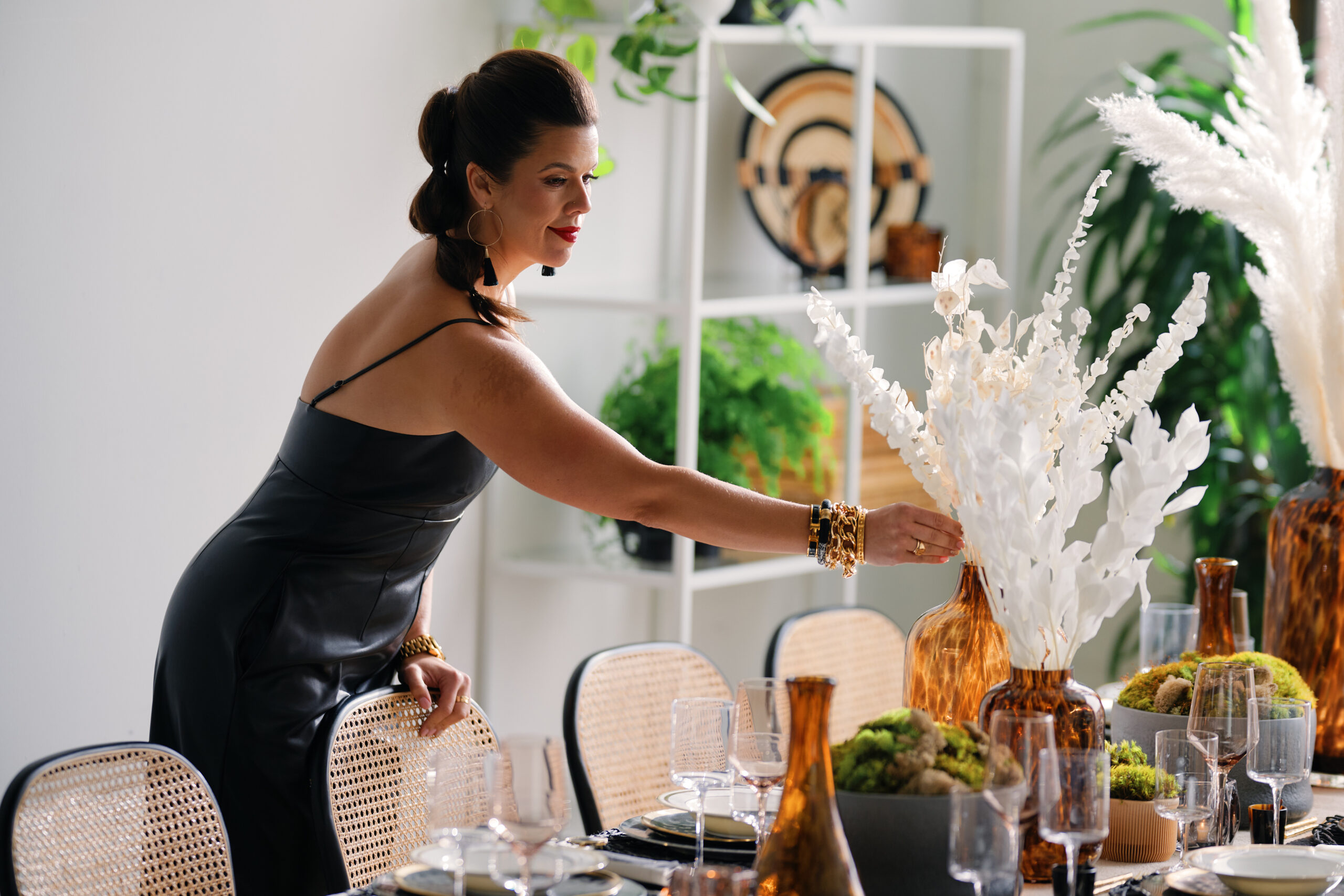Celebrating Juneteenth
Juneteenth, now a federal holiday commemorating the emancipation of enslaved African Americans, is celebrated on the anniversary of June 19, 1865 when Major General Gordon Granger read the proclamation of freedom for slaves in Galveston, Texas. General Order Number 3 began most significantly with:
“The people of Texas are informed that in accordance with a Proclamation from the Executive of the United States, all slaves are free. This involves an absolute equality of rights and rights of property between former masters and slaves, and the connection heretofore existing between them becomes that between employer and hired laborer.”
President Abraham Lincoln had issued the Emancipation Proclamation on January 1, 1863, promising freedom to the slaves in the rebellious parts of Southern secessionist states of the Confederacy, but not in federally held territories such as Delaware, Maryland, and West Virginia. It took over two years for the law to make its way across the country as enforcement relied on the advance of Union troops. When emancipation finally came to Texas, the last state to hear the official news as the southern rebellion collapsed, celebration was widespread. While that date didn’t mark the unequivocal end of slavery, June 19 became a day of celebration across the United States—created, preserved, and spread by African Americans.
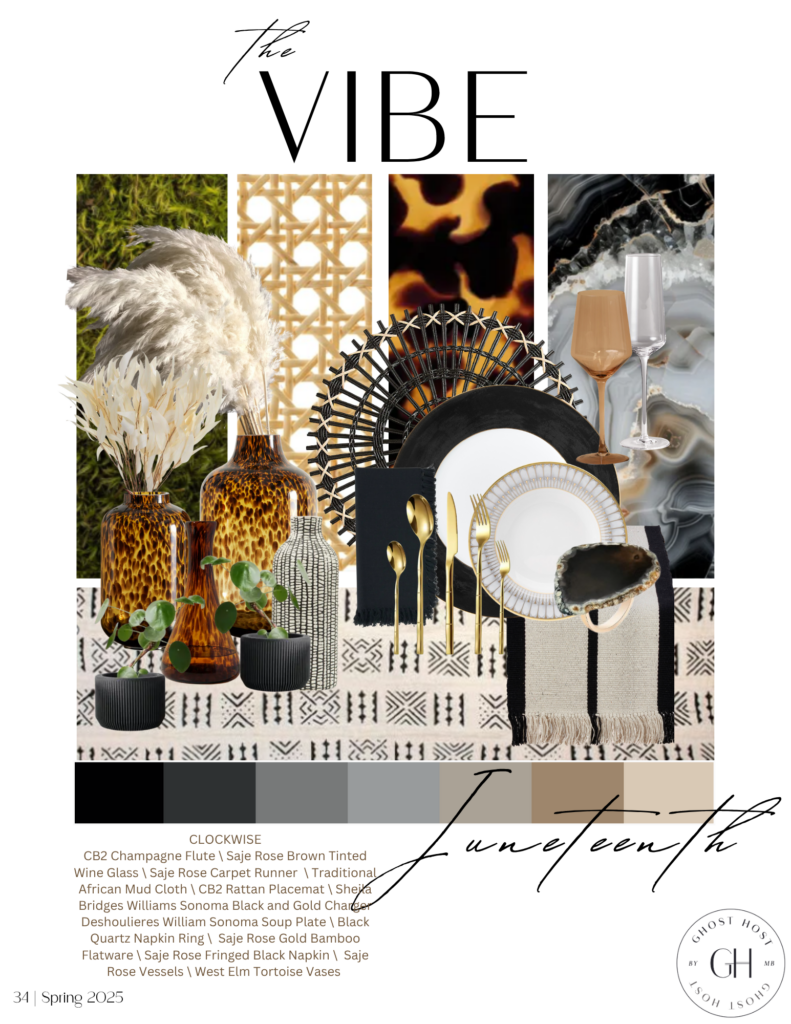
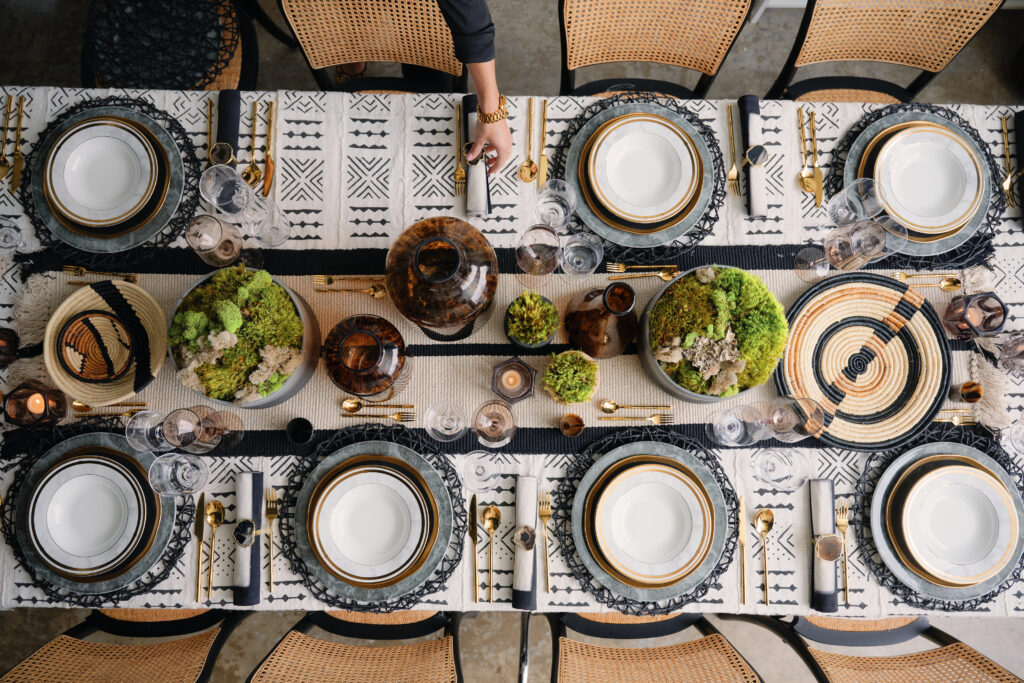
I think it goes without saying that the current climate of the U.S. doesn’t necessarily reflect the equal rights or ideals that were promised over 150 years ago (nor the climate over the past 150 years…). The celebrations surrounding Juneteenth have waxed and waned over the years based on the climate of civil rights and while it is now a Federal Holiday (as of 2020), many people are unaware of how to honor or celebrate in an authentic way. As a white woman writing this, I realize my lens is a different one. I continue to interrogate my biases, to acknowledge my privilege and blind spots, to challenge racism and to create and engage in thoughtful and meaningful ways to use my privilege to make space to lift up the voices and talents of marginalized people.
We encourage you to learn and take note, to participate in a celebration this year, to listen, to interrogate your own discomfort. What does it mean to be free? What rights or privileges do you have that others may not? What does someone else’s reality look like in comparison with your own?
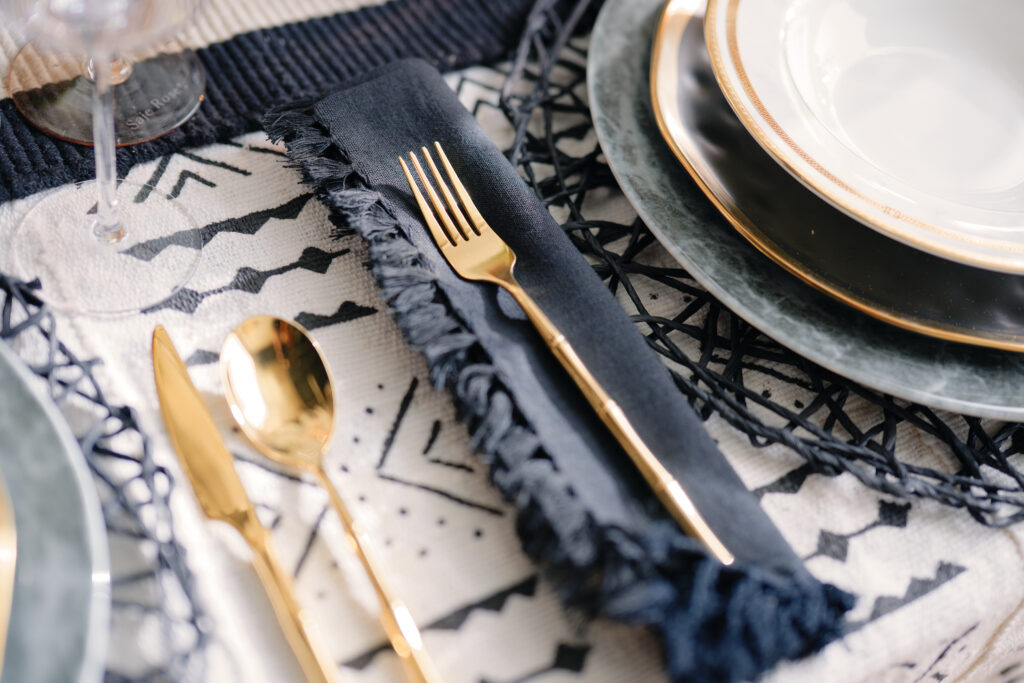
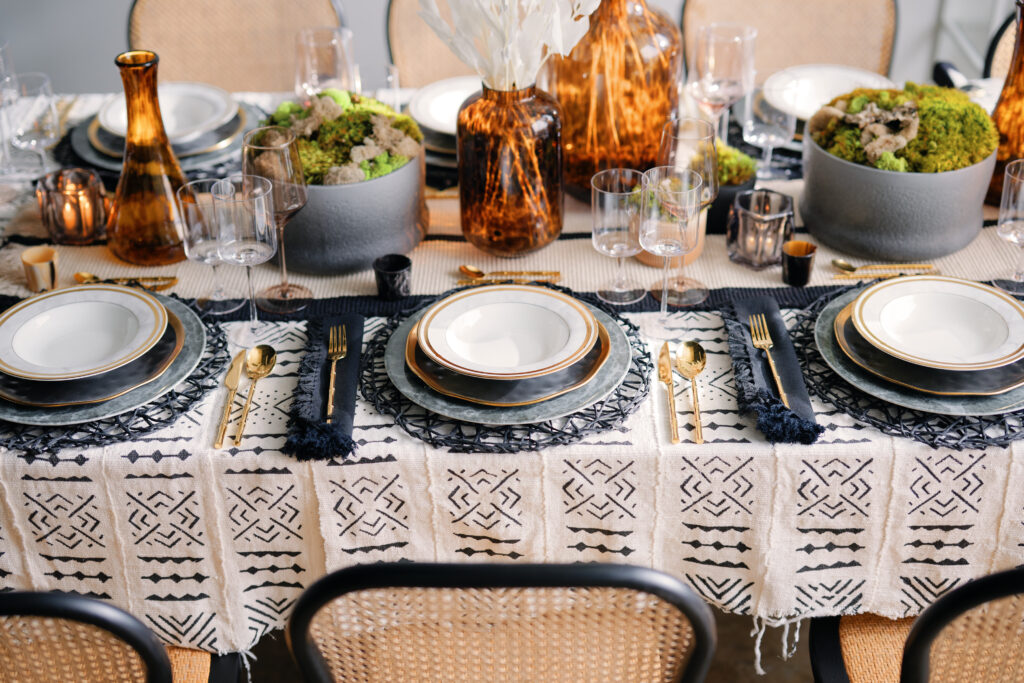
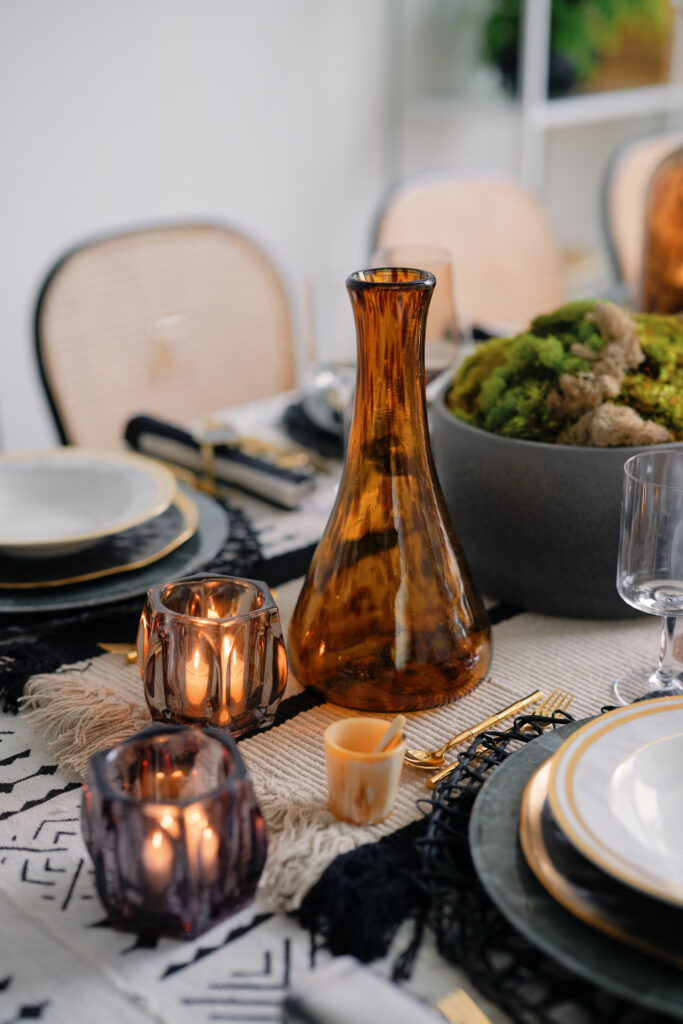
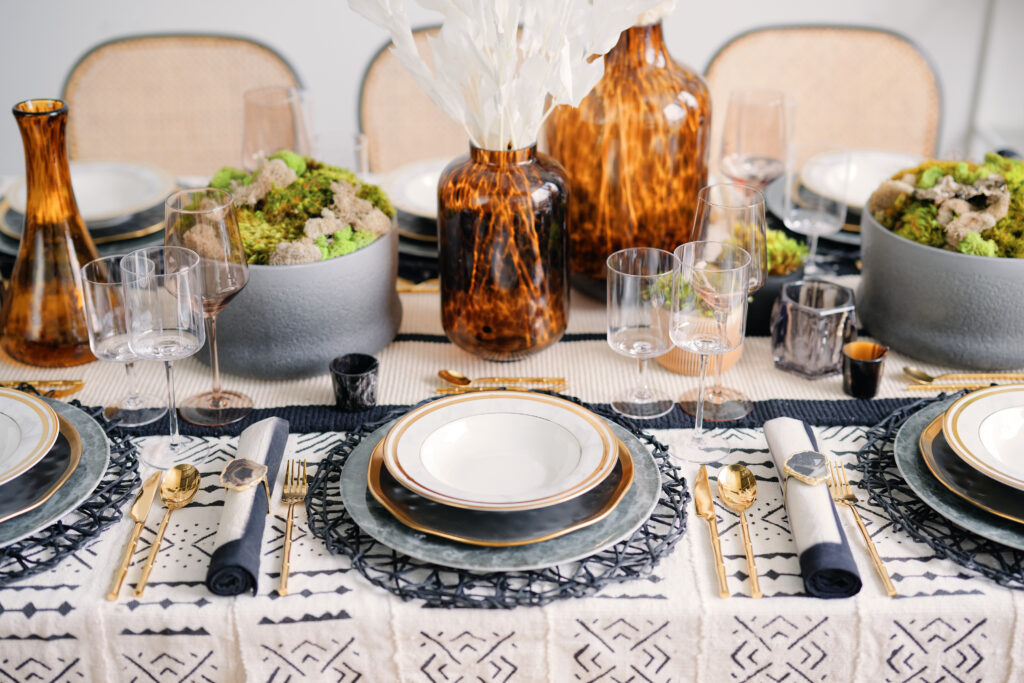
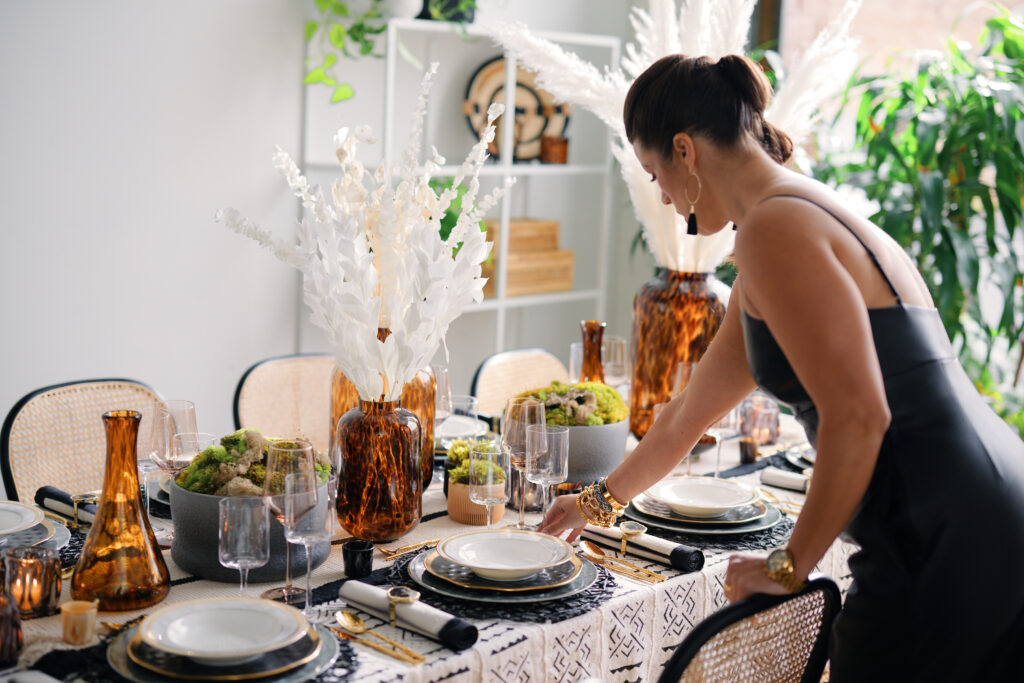
For our Juneteenth celebration we partnered with our friend Deja, owner of Saje Rose in Florida, New York. She provided the most stunning flatware, stemware, table runner, napkins and tortoise carafes. I encourage you to visit her site, read her story and of course if you are ever in Florida, NY, stop by her shop for a workshop.
To create this tablescape I pulled inspiration from my own travels to Africa and leaned in on a neutral palette rich with texture and textiles. The grey marble china reminiscent of the rock from Victoria Falls during drought. The grey marble chargers inspired by the grey skin of the herds of elephants traversing the vast lands. The browns and natural earthtones accented with rich green moss nodding to the tops of the Balboa Trees against the clay earth.
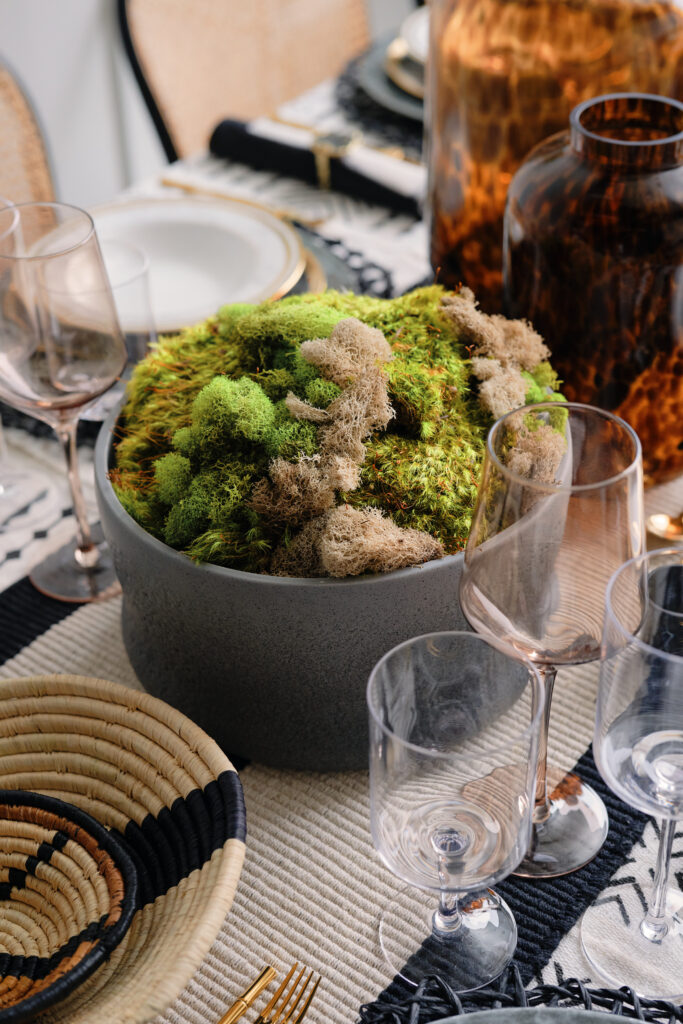
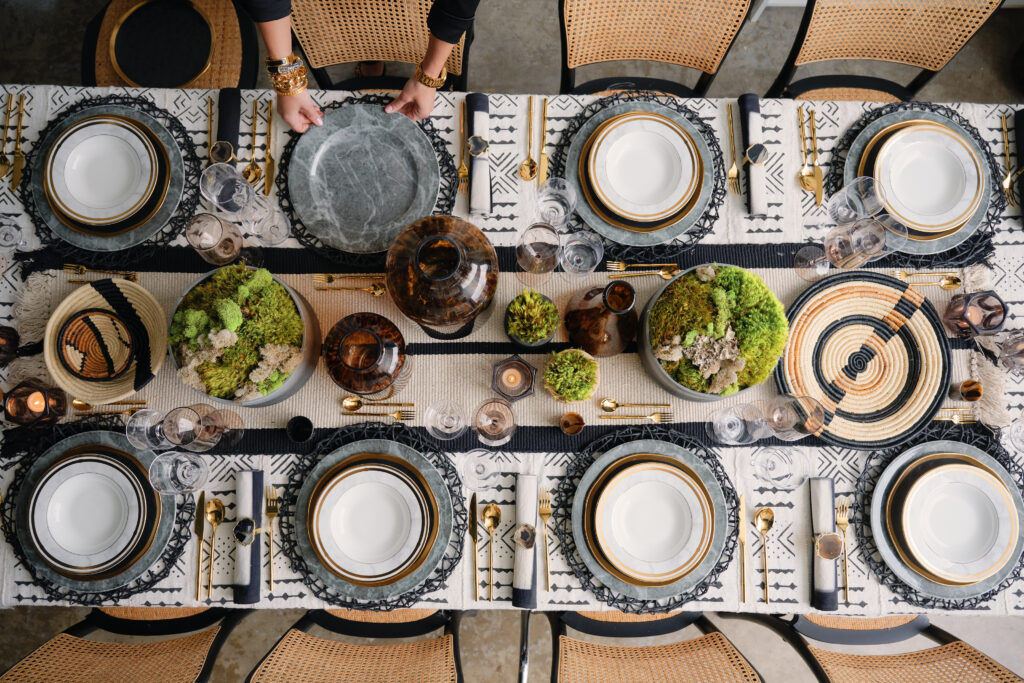
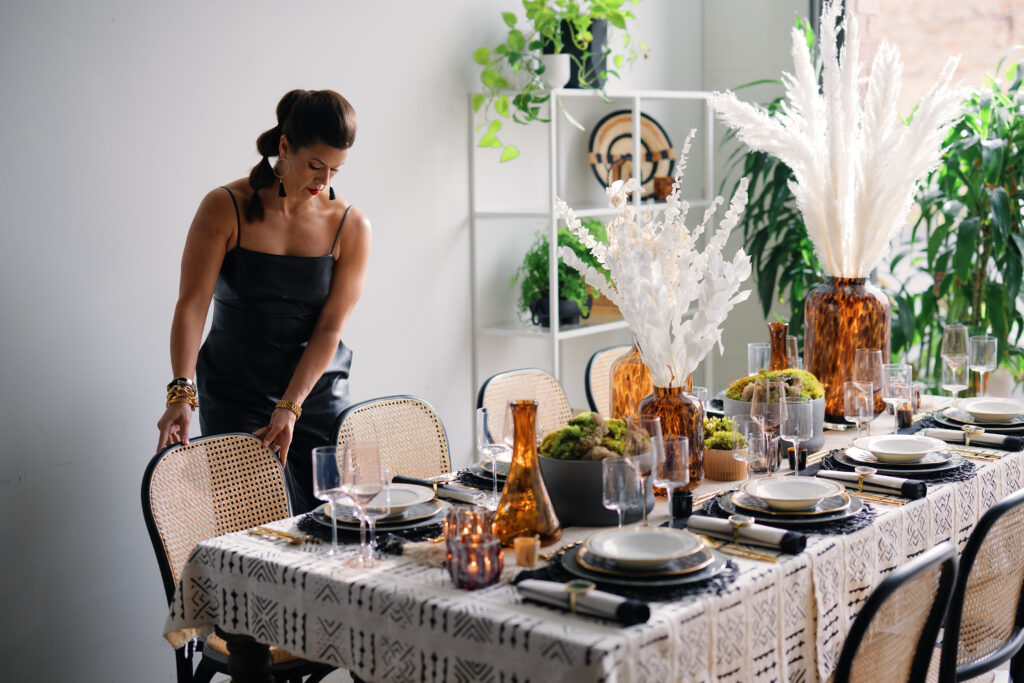
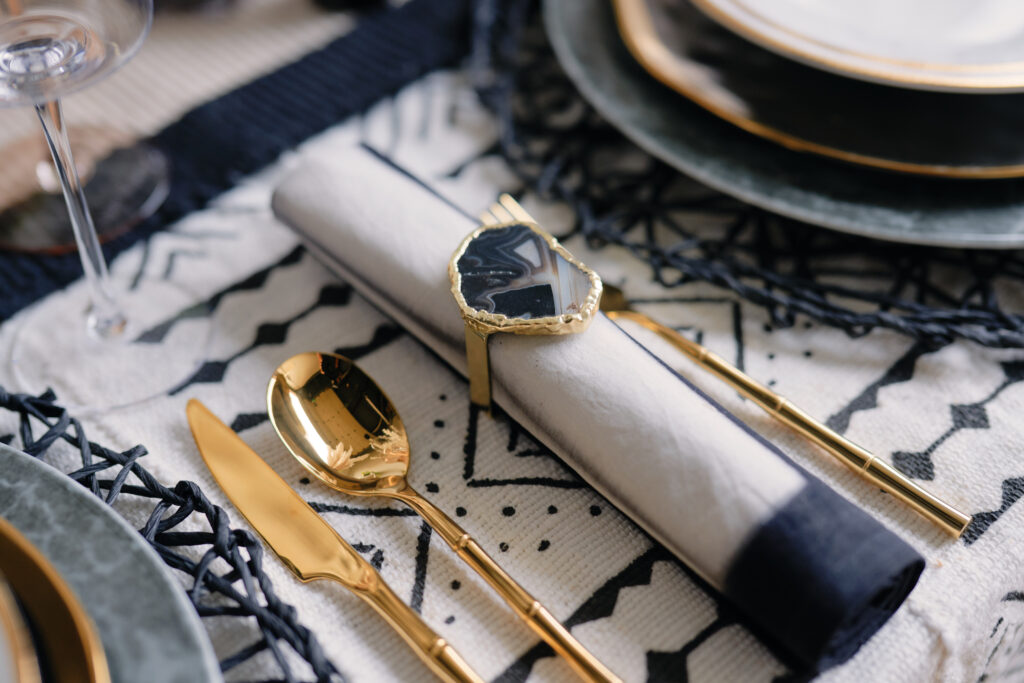
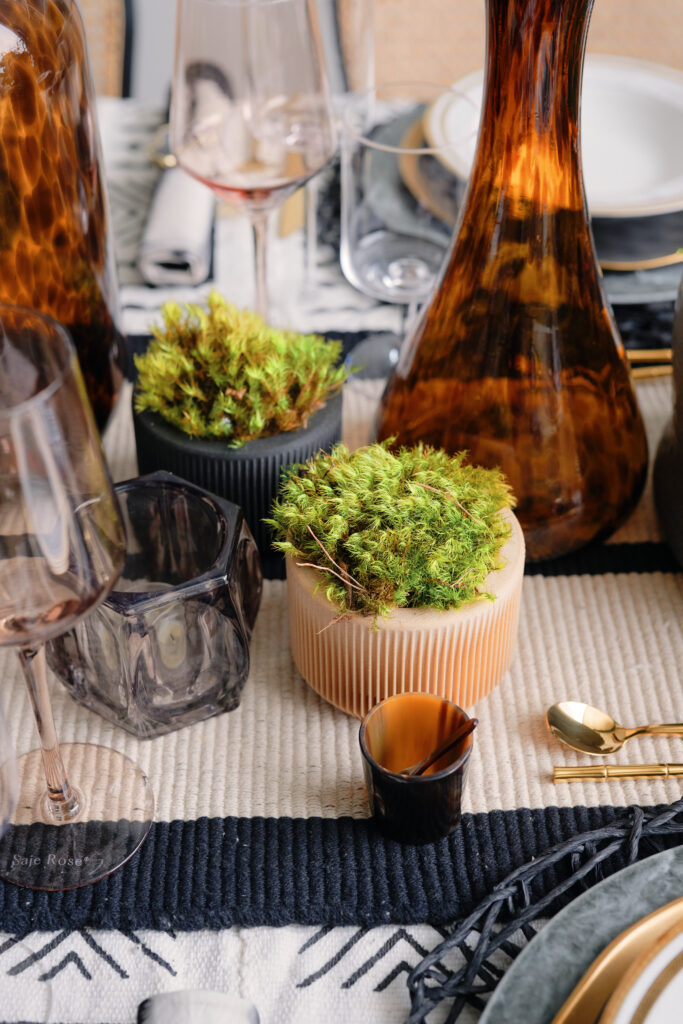
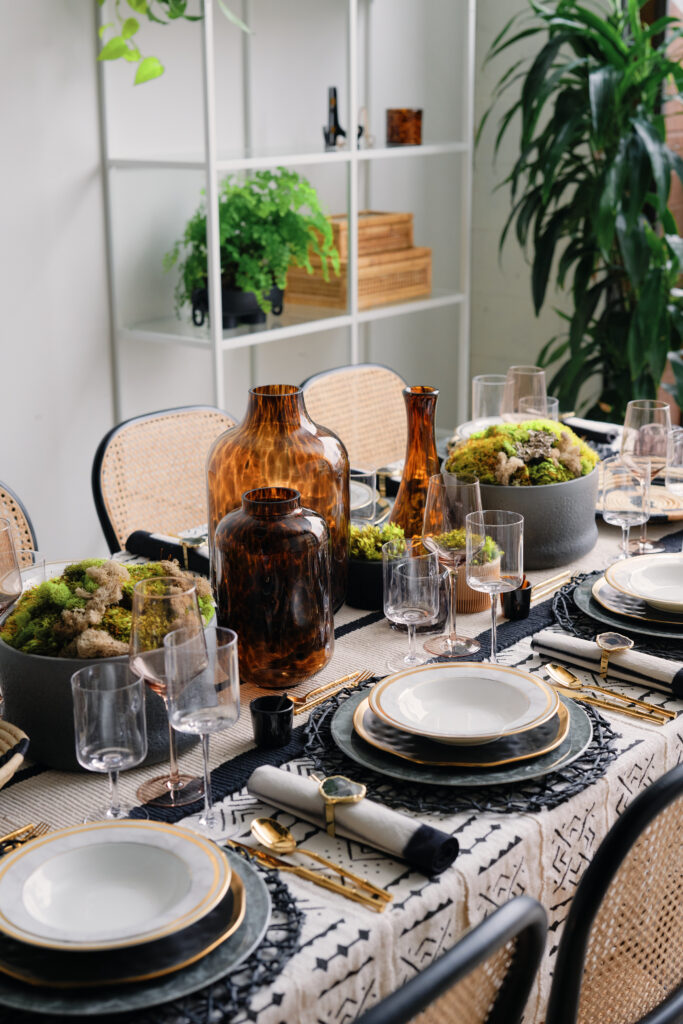
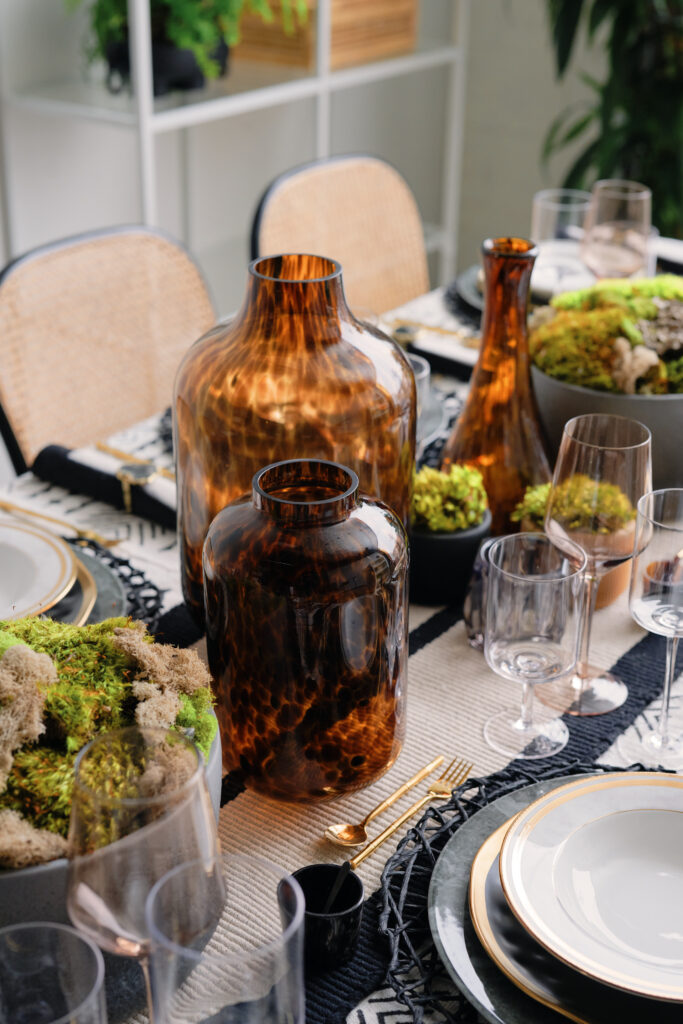
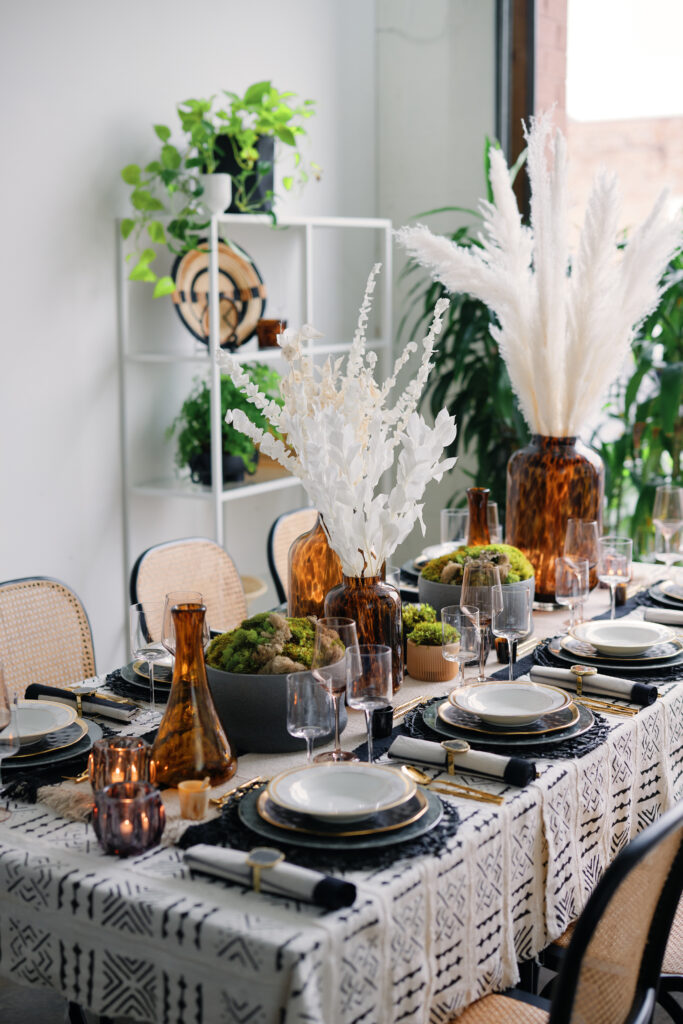
Read more about the history of Juneteenth HERE (and source).
Celebrating Juneteenth
Partners:
Ghost Host by MB | Design
Photography | Eli Turner Studios
Makeup | Beauty N The Brow
Hair | Katoya Nicole
Rentals | Table Manners DC
Tabletop | Sage Rose
